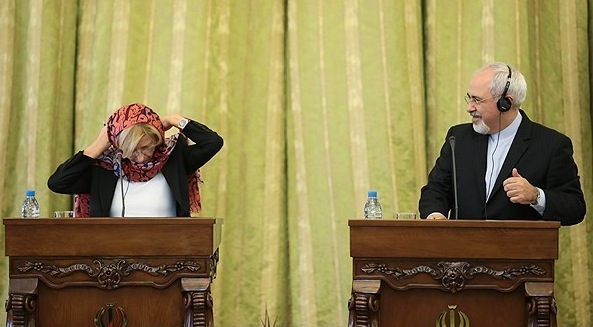January 10-2014

European politicians are flocking to Tehran in anticipation that Iranian foreign policy has shifted 180 degrees and the Islamic Republic is preparing to become a normal member of the international community.
Most of the visitors are parliamentary delegations that are not necessarily aware of the nuances of Iranian policy.
Parliamentary delegations from Britain and Germany were in Tehran early this week, an Irish delegation was scheduled to arrive Friday, Romanian parliamentarians are due next week while an Italian group and a Canadian delegation are expected later in the month. A group from the European Parliament started the lineup last month.
So far the sole cabinet minister to visit has been the Italian foreign minister who came last month with the clear goal of making the Iranian government aware that Italy is eager to see its firms win contracts when sanctions are eventually lifted. The Italian prime minister has said he will make the trek to Tehran soon, underscoring Italian eagerness.
Most of visitors say their primary interest is trade promotion. But the interim agreement signed November 24 does not change the banking restrictions, so there is little room yet for more trade.
The most prominent visitor was the head of the UK parliamentary delegation, Jack Straw, who was foreign minister under the previous Labor party government and visited Iran in that role in 2003, the last British minister in Iran.
The Irish delegation assured reporters in Dublin that it would take up the issue of human rights on the visit, with an emphasis on capital punishment. Executions are a huge issue with European politicians and are opposed almost uniformly from right to left, unlike in the United States. Issues of torture and fair trial procedures do not get as much attention in Europe as executions. When the EU talks with Iran began in 2003, stoning was the single dominant issue.
The Irish delegation said “bolstering trade” would be its primary mission. Ireland closed its embassy in Tehran in February 2012, saying trade volume had “fallen short of expectations.”
There have been few reports of private businessmen visiting Tehran. They may be doing so without publicity. But most companies with an interest in Iranian business are very aware of the banking restrictions and know full well that US sanctions remain in force. Many major firms have spoken with Iranian officials abroad. Their major goal appears to be to keep the door open and to tell Iran of their interest—but they are careful not to get too close and arouse the fury of the American right.
